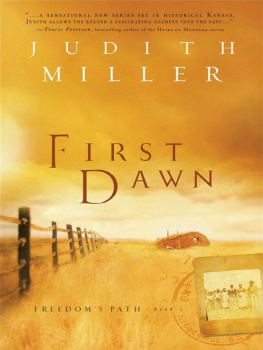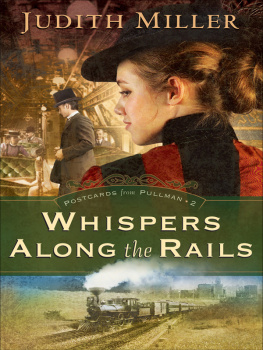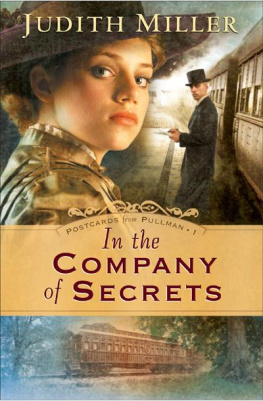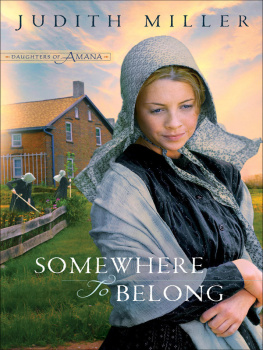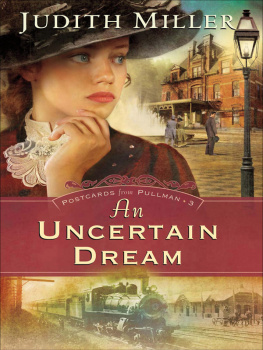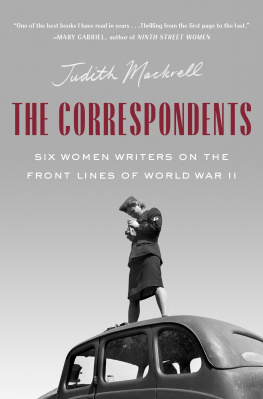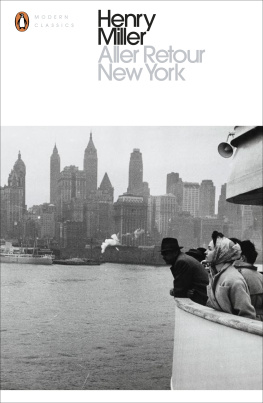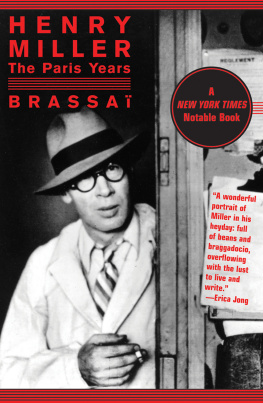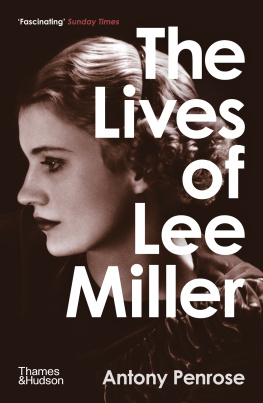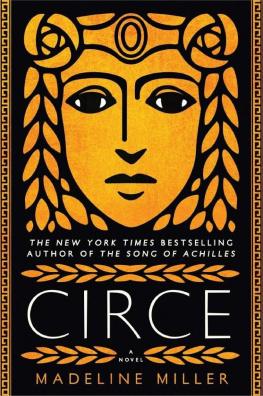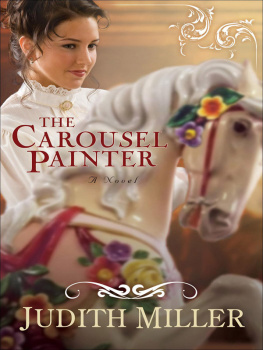Thank you for downloading this Simon & Schuster eBook.
Join our mailing list and get updates on new releases, deals, bonus content and other great books from Simon & Schuster.
C LICK H ERE T O S IGN U P
or visit us online to sign up at
eBookNews.SimonandSchuster.com
We hope you enjoyed reading this Simon & Schuster eBook.
Join our mailing list and get updates on new releases, deals, bonus content and other great books from Simon & Schuster.
C LICK H ERE T O S IGN U P
or visit us online to sign up at
eBookNews.SimonandSchuster.com
ALSO BY JUDITH MILLER
Germs: Biological Weapons and Americas Secret War (with Stephen Engelberg and William Broad)
God Has Ninety-nine Names: Reporting from a Militant Middle East
One, by One, by One: Facing the Holocaust
Saddam Hussein and the Crisis in the Gulf (with Laurie Mylroie)

Simon & Schuster
1230 Avenue of the Americas
New York, NY 10020
www.SimonandSchuster.com
Copyright 2015 by Judith Miller
All rights reserved, including the right to reproduce this book or portions thereof in any form whatsoever. For information address Simon & Schuster Subsidiary Rights Department, 1230 Avenue of the Americas, New York, NY 10020.
First Simon & Schuster hardcover edition April 2015
SIMON & SCHUSTER and colophon are registered trademarks of Simon & Schuster, Inc.
For information about special discounts for bulk purchases, please contact Simon & Schuster Special Sales at 1-866-506-1949 or .
The Simon & Schuster Speakers Bureau can bring authors to your live event. For more information or to book an event, contact the Simon & Schuster Speakers Bureau at 1-866-248-3049 or visit our website at www.simonspeakers.com.
Interior design by Joy OMeara
Jacket design by Jason Heuer
Jacket images Shutterstock
Library of Congress Cataloging-in-Publication Data
Miller, Judith, 1948
The story : a reporters journey / Judith Miller.First Simon & Schuster hardcover edition.
pagescm
1.Miller, Judith, 1948 2.Women journalistsUnited StatesBiography.I.Title.
PN4874.M492A32015
070.92dc23
[B]
2014039394
ISBN 978-1-4767-1601-5
ISBN 978-1-4767-1603-9 (ebook)
For friends, fellow journalists killed while telling the story:
Dial Torgerson
David Blundy
Daniel Pearl
Marie Colvin
And for Bill Safire, word warrior, who encouraged me to keep trying
CONTENTS
PROLOGUE
I thought I was doing well. In the spring of 2002, a year before the invasion of Iraq, I was at the peak of my profession. A member of an investigative unit at the New York Times , Americas most prestigious newspaper, I had been part of a small team that had just won a Pulitzer for our investigation before 9/11 into Al Qaeda and its growing threat to America. I had also received an Emmy that year, for a documentary based on Germs , a book I had written with Stephen Engelberg and William Broad, two respected Times colleagues. I had finally been lucky in love. For the past nine years I had been married to a brilliant publisher, a legend in his own profession, who was proud of my work and tolerated my frequent lengthy assignments often to dangerous places, especially in the Middle East, where I had been the papers Cairo bureau chief for several years.
I could not have imagined that three years later my reporting would be mired in controversy, or that some of my life-long assumptions about politics, foreign policy, and journalism would be tested and shattered.
At the start of the Iraq War in 2003, I was sent to cover it as the only reporter embedded in a secret army unit charged with finding the weapons of mass destruction that the Central Intelligence Agency and other intelligence agencies concluded Saddam Hussein was hiding. Before and during the war, it was my job to report in the most timely way on what the US government believed to be true. It sounds easy. In the hypersecretive world of national security, it isnt.
The CIA and other intelligence agencies were convinced with high confidence that Saddam had chemical and germ weapons programs and was actively seeking a nuclear bomb. I got scoops about some of that intelligence. I hedged the assertions with all the proper qualifiers. Eventually, over the course of Americas long occupation of Iraq, more than six thousand chemical weapons or remnants of themsome containing mustard gas and sarin made before the 1991 warwere found and tragically sickened some American soldiers and Iraqis. While the Times and other news outlets claimed that these were not the weapons for which America had invaded, Saddams failure to acknowledge or account for them violated his pledges to the United Nations and was part of the administrations justification for war.
But the central, clearly newsworthy claim of some of my prewar stories was wrong. As we now know, Saddam did not have an active program to create and use WMD or stockpiles of such new, sophisticated weapons. The faulty intelligence on which the decisions of policy makers and politicians were based was used to justify a war whose consequences have thus far proven disastrous for the Iraqi people and America.
As the war began to go badly, controversy erupted not only over the governments missteps but also the medias role in publicizing the governments estimates, and my reporting, in particular. From a journalist whose boss, Bill Keller, once described as smart, relentless, incredibly well sourced, and fearless, I was suddenly being characterized as a pushy woman reporter who would do anything for a scoop, a warmonger who had helped sell and carry out the war.
A campaign against my reporting had been launched in the blogosphere by critics, some of whom have no idea what reporting involves; I sensed that they were reacting to the ill-fated war. But the false characterizations still stung. I often didnt know whether to laugh or cry. (I did a bit of both.) Accusations that I was a closet neocon or the most gullible
On WMD in Iraq, I had lots of company in government and the media. In hindsight, few of the officials whose decisions prompted the mess in Iraq understood what they were getting intonot those in 1991 who favored leaving Saddam in power, or those in 2003 who sought to bring democracy to Iraq by force. Wrong, too, were those who argued in 2007 as the war was failing that switching strategies and a surge of forces in Iraq would not affect Americas military fortunes there. So were those who claimed that America had finally won in Iraq, and those in 2010 who advocated pulling our troops out posthaste.
There is no shortage of mistakes about Iraq. Good grace, and honesty, require all of us who made them to admit error. This book is part of that process.
Over time questions about the rightness of the Iraq War both in its conception and outcome morphed in some quarters into a broad condemnation of the media and accusations that the pressnot the governmenthad taken the country to war. The charge was both untrue and toxic to our political discourse. But with newspapers under increasing economic pressure, the charges of warmongering felt like mortal threats to an institution and a profession to which I had devoted my life.
It was into this landscape that a federal investigation was launched to determine who had leaked the name of a CIA agent whose husband had accused the White House of having lied about Iraqs WMD. I received a federal subpoena demanding that I disclose the identity of sources who may have blown the agents cover. I went to jail to protect those sources, or so I thought.
Next page

